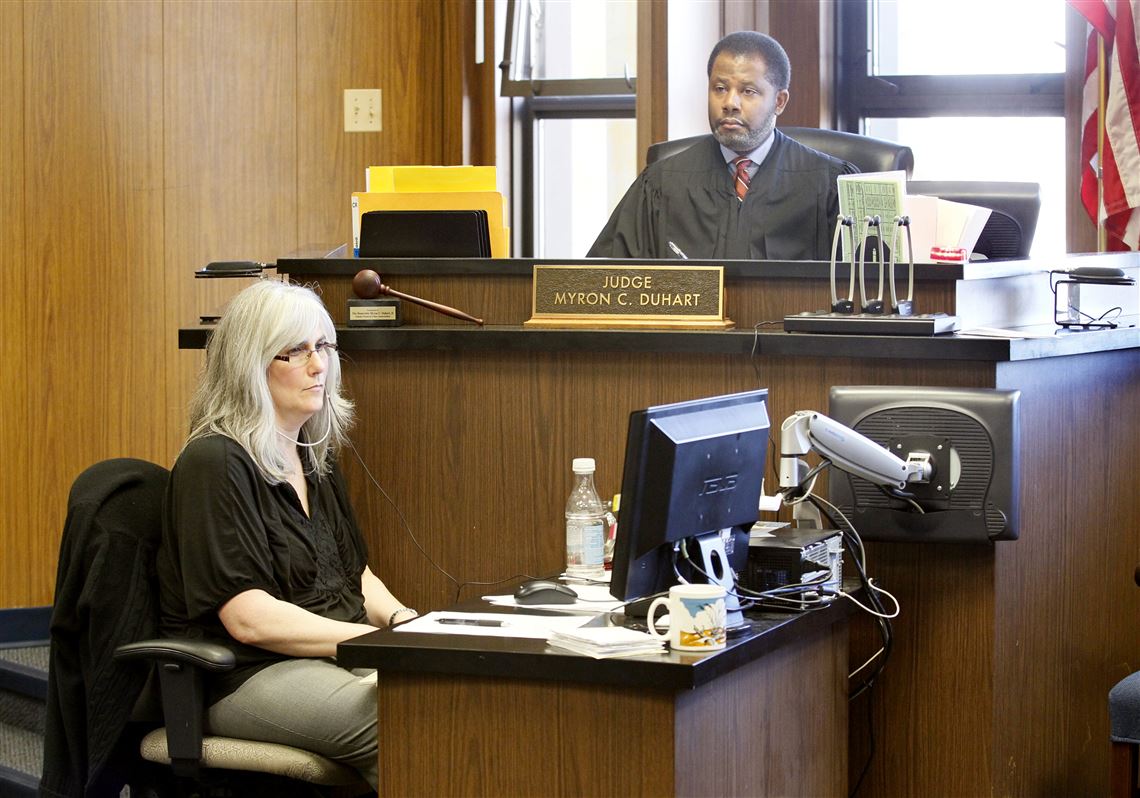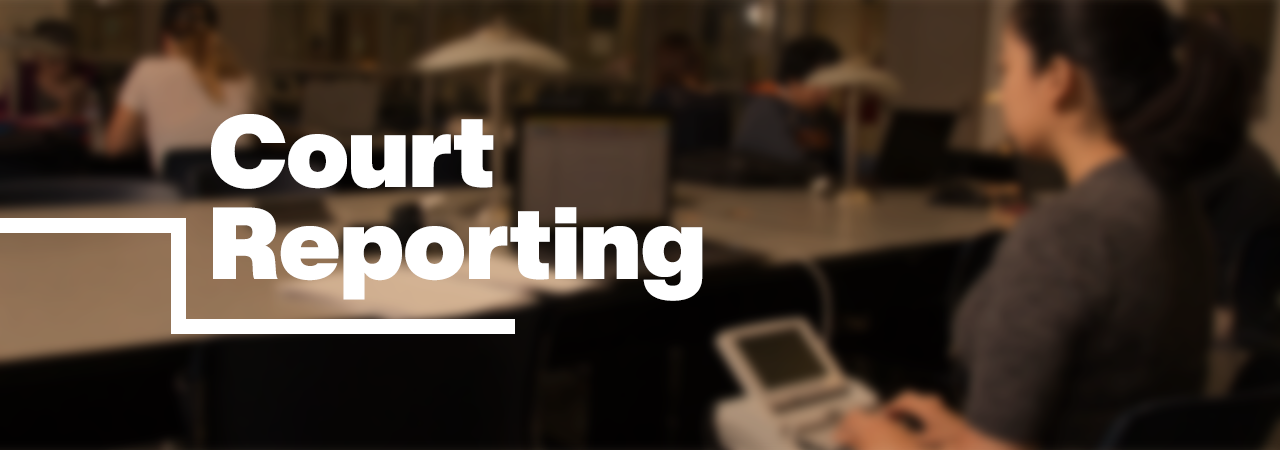How durham court reporting tools are reshaping the legal process
Recognizing Court Reporting: An Overview of Its Function in the Legal Process
Court reporting is an essential part of the legal system. It guarantees that every spoken word during depositions and trials is precisely recorded. This transcription gives a reputable record for future referral. Stenotype reporter have specialized skills and should browse numerous innovations. durham court reporting. As the lawful landscape evolves, so also does the function of these experts. Recognizing their impact increases essential inquiries regarding the future of lawful paperwork and accountability
The Relevance of Accurate Transcription in Legal Proceedings

Precise transcription plays a vital duty in legal proceedings, functioning as the structure for justice and liability. Stenotype reporter, tasked with catching talked dialogue during depositions and tests, ensure that every word is recorded with accuracy. This transcription ends up being a vital document, permitting lawyers, courts, and courts to review the process precisely. Mistakes or omissions in transcription can bring about misunderstandings, misinterpretations, and possibly unjustified outcomes.
These records offer as main records that can be referenced in future legal activities, allures, or scholarly evaluations. The stability of the judicial procedure counts heavily on the dependability of these papers. The capability to offer a clear, verbatim account of testaments and debates is essential in maintaining the regulation of regulation. The relevance of exact transcription can not be overstated; it is crucial for guaranteeing fair trials and preserving public count on in the legal system.
The Abilities and Qualifications of Court Reporters
While the duty of a stenotype reporter is necessary in the legal system, it needs an unique set of abilities and credentials to guarantee efficient efficiency. Proficiency in shorthand or voice writing is essential, making it possible for reporters to record talked language properly and successfully. Additionally, a solid grip of lawful terminology and procedures is essential, as stenotype reporter must comprehend intricate discussions that take place during tests and hearings.
Furthermore, focus to information and phenomenal paying attention abilities are needed to guarantee exact transcripts. Numerous court press reporters possess qualification from recognized programs, which usually consist of rigorous training in transcription strategies and legal principles. Solid social skills additionally play a significant duty, as reporters often engage with judges, attorneys, and witnesses. Ultimately, the mix of technological efficiency, lawful expertise, and interpersonal abilities outfits court reporters to fulfill their obligations properly within the judicial system
Different Kinds Of Court Reporting Solutions
Court reporting solutions encompass a selection of specific features tailored to satisfy the demands of the legal system. One famous type is deposition reporting, where court reporters record witness testimonies outside of court settings, frequently for usage in tests. Another service is real-time reporting, which gives instant transcription throughout procedures, allowing attorneys to gain access to online message feeds. Furthermore, some stenotype reporter use transcription of sound and video clip recordings, ensuring accurate paperwork of events.
Shut captioning services are additionally supplied, making lawful process accessible to people with hearing impairments. Moreover, several court reporting firms specialize in serving particular lawful areas, such as household legislation, criminal legislation, or corporate legislation, thus offering tailored experience. Finally, some press reporters might give video clip deposition solutions, which enhance the paperwork process through aesthetic context. Each kind of solution plays a crucial duty in ensuring the precision and integrity of legal documents.
The Innovation Behind Modern Court Reporting
Modern court reporting counts greatly on sophisticated modern technology to improve precision and efficiency. Stenography equipments, digital recording strategies, and real-time transcription software program are indispensable elements of this area. These devices not only promote the transcription procedure however likewise assure that legal proceedings are documented with accuracy.
Stenography Machines Explained
Stenography makers serve as the foundation of contemporary court reporting, changing spoken words into composed message with exceptional efficiency. These specialized devices use a distinct keyboard design that allows court press reporters to type syllables and words phonetically, enabling them to catch dialogue at broadband. Using shorthand icons means that reporters can transcribe conversations in genuine time, ensuring accurate records of legal process. Stenography devices are geared up with advanced modern technology, including software application that can convert stenographic notes into understandable message. This combination of software and hardware considerably boosts the speed and precision of court reporting, making it an indispensable tool in the legal area. Consequently, stenography continues to be a vital skill for experts in the court room.
Digital Recording Techniques
Advancements in technology have broadened the devices offered for court reporting beyond conventional stenography equipments. Digital videotaping strategies have arised as a trustworthy option, recording sound and video of legal procedures with high fidelity. These systems make use of microphones and videotaping gadgets strategically placed to ensure clearness and decrease history sound, offering a detailed record of testimonies and conversations. The tape-recorded content can be repeated for precision during transcription, allowing court press reporters to verify details successfully. In addition, digital recordings can be saved securely for future recommendation, improving accessibility and protecting the honesty of the lawful procedure. As courts accept these modern innovations, electronic recording strategies play a significantly crucial duty in preserving reliable and accurate paperwork.
Real-Time Transcription Software Application
As courts significantly adopt modern technology to improve the lawful process, real-time transcription software program has come to be a vital tool for court press reporters. This cutting-edge innovation allows stenotype reporter to transcribe spoken discussion immediately, offering prompt accessibility to accurate documents during process. By converting spoken words right into message as they are talked, real-time transcription software application promotes efficient communication in between attorneys, judges, and various other court participants. The software program commonly incorporates with court room sound systems, ensuring that every word is caught with accuracy. In addition, it can create records for review and distribution, simplifying the paperwork procedure. As a result, real-time transcription software not only enhances the effectiveness of court reporting however likewise enhances the overall accessibility of lawful process.
The Duty of Court Reporters in Keeping Courtroom Honesty

Court reporters add to the transparency of the judicial process. By providing comprehensive records, they allow the public and media to gain access to look at more info court process, promoting accountability. Their existence in the courtroom additionally helps maintain decorum, as their activities underscore the severity of the lawful procedure.
In enhancement to technical abilities, stenotype reporter should show expertise and impartiality, necessary for preserving the integrity of the judicial system. Ultimately, their diligent initiatives support fair trial legal rights and enhance public confidence in the legal structure.
The Future of Court Reporting in an Evolving Legal Landscape
As the legal landscape develops, court reporting encounters considerable changes driven by technical developments and an expanding change in the direction of remote solutions. These advancements are improving how stenotype reporter run, affecting both the rate and accuracy of lawful paperwork. The future of this profession will likely rest on its flexibility to these emerging patterns.
Technological Developments Influencing Reporting
Countless technological advancements are improving the landscape of court reporting, ushering in a new age of performance and precision. Digital tape-recording systems have come to be commonplace, permitting for precise audio capture throughout procedures. These systems frequently incorporate with transcription software program, promoting faster turn-around times for records. In addition, synthetic intelligence is playing a significant role in improving the transcription process, with speech acknowledgment innovation helping reporters in generating a lot more exact paperwork. In addition, cloud-based storage space options improve ease of access, making it possible for lawyers to obtain and share records easily. As these developments continue to advance, they assure to further transform the court reporting career, boosting the general legal process while preserving high requirements of professionalism and trust and honesty.
Change In The Direction Of Remote Solutions
The lawful landscape is significantly embracing remote solutions, improving how court reporting is conducted. This change has been sped up by technical advancements and the necessity for adaptability during current global occasions. Stenotype reporter currently utilize video clip conferencing systems to promote hearings and depositions, allowing for greater ease of access and efficiency. Remote services make it possible for engagement from numerous areas, reducing travel expenses and logistical obstacles. Additionally, electronic transcription devices enhance precision and simplify the documentation process. As the lawful market adapts, stenotype reporter are called for to develop brand-new abilities and acquaint themselves with emerging modern technologies. This development offers both possibilities and difficulties, pressing the occupation towards look at this now a more incorporated, technology-driven future while maintaining its core dedication to delivering trusted and specific legal paperwork.

Regularly Asked Concerns
Exactly How Much Do Court Reporters Generally Earn Each Year?
Stenotype reporter normally make between $50,000 and $100,000 annually, relying on experience, place, and the demand for services. Specialized accreditations or skills can additionally enhance their earning potential in different legal settings.
What Is the Average Duration of Court Reporting Training Programs?
Court reporting training programs typically last in between 18 months to 2 years. This period varies based upon the organization and the details curriculum, incorporating both theory and functional skills important for aiming court press reporters.
Can Court Reporters Job Remotely for Legal Process?
Yes, court reporters can function remotely for lawful proceedings, utilizing innovation to record sound and video feeds. This versatility allows them to give accurate documentation while maintaining the integrity of the legal process.
What Is the Distinction In Between a Court Press Reporter and a Stenographer?
A stenotype reporter concentrates on transcribing legal process, while a clerk focuses on shorthand composing for various contexts, including conferences and meetings. Both duties include recording talked words however differ in their particular applications and settings.
Are Court Reporters Required to Have Licenses or accreditations?
Yes, court press reporters are usually required to get licenses or certifications. These qualifications guarantee they possess the needed abilities and expertise to accurately record legal proceedings, maintaining the honesty of the judicial process.
Lots of court reporters possess accreditation from certified programs, which commonly consist of rigorous training in transcription methods and lawful ethics. One prominent type is deposition reporting, where court press reporters transcribe witness testimonies outside of court settings, frequently for usage in trials. As courtrooms progressively embrace modern technology to boost the lawful process, real-time transcription software has come to be an essential tool for court reporters. Yes, court reporters can work remotely for legal proceedings, making use of innovation to transcribe audio and video clip feeds. A court press reporter specializes in transcribing lawful process, while a stenographer concentrates on shorthand writing for numerous contexts, look at this site including meetings and conferences.